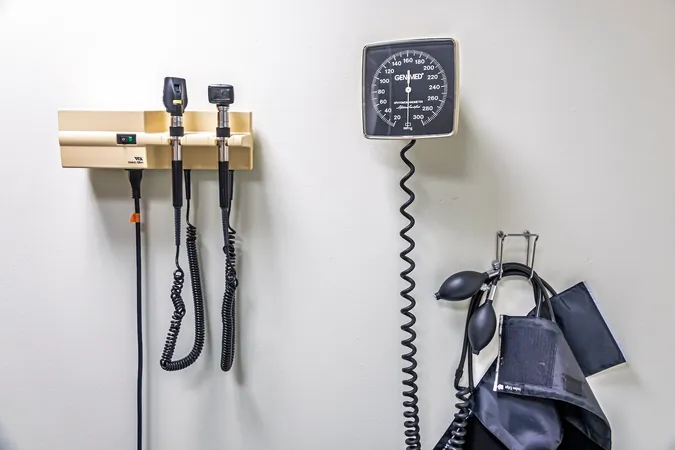
Doctors Warn: Is AI Compromising Patient Care?
2024-12-28
Author: Yan
As artificial intelligence continues to make its way into healthcare practices, a recent discussion among practitioners has raised alarming concerns about the impact of AI on patient care. In one incident, a medical professional named Sharp highlighted a troubling interaction with an AI system that responds to patient inquiries. A random query posed was: "Ate a tomato and my lips are itchy. Any recommendations?" The AI, powered by a version of OpenAI's GPT-4, suggested avoiding tomatoes and using an oral antihistamine, but also recommended a steroid topical cream. Sharp immediately expressed his disapproval, emphasizing that while avoiding tomatoes is sound advice, advising a steroid cream for lip irritation is potentially dangerous due to the sensitive skin in that area.
This concern echoes broader hesitations among medical professionals regarding the integration of AI into healthcare. Roxana Daneshjou, a professor at Stanford, noted that optimism surrounding AI often forgets the critical distinction between consumer software and healthcare applications. While minor errors in personal software may be inconsequential, errors in medical advice can have life-or-death implications. Daneshjou's team reported that during an assessment of ChatGPT's medical responses, they found dangerously inaccurate information 20% of the time—a figure she deemed unacceptable for clinical practice.
Supporters argue that AI can enhance healthcare delivery by assisting practitioners rather than replacing them. A Stanford physician stated that many doctors use AI to transcribe patient interactions, which allows for more engaged consultations. However, issues with AI accuracy persist; for instance, one transcription mistakenly attributed a patient’s cough to exposure to their child when the patient never made that statement. Daneshjou further uncovered biases in the transcription process, revealing that AI systems made unfounded assumptions about patients based on ethnicity, highlighting the potential dangers of AI-generated assumptions.
While AI indeed holds the potential to revolutionize healthcare, the necessity for rigorous checks on AI outputs cannot be overstated. Physicians need to thoroughly vet AI-generated recommendations to ensure patient safety and maintain trust. This adds an additional layer of responsibility for healthcare providers, who must validate AI-generated data to prevent complacency in patient care.
At its core, generative AI operates primarily as a predictive tool, analyzing vast amounts of data without a true understanding of the context behind the information it provides. It lacks the human ability to understand individual patient circumstances, often delivering generalized advice that may not apply.
Dr. Adam Rodman from Beth Israel Deaconess Medical Center expressed that while the potential of AI technologies is promising, they have not yet achieved the reliability required for integration into critical healthcare settings. He fears that reliance on “AI slop” could further deteriorate the quality of medical care.
Before your next appointment, consider asking your doctor whether they are incorporating AI into their practice. It could lead to crucial conversations about the implications of technology on your healthcare experience. As promising as AI may be, vigilance is essential in ensuring it serves as a complement to, rather than a replacement for, the expertise of medical professionals.



 Brasil (PT)
Brasil (PT)
 Canada (EN)
Canada (EN)
 Chile (ES)
Chile (ES)
 Česko (CS)
Česko (CS)
 대한민국 (KO)
대한민국 (KO)
 España (ES)
España (ES)
 France (FR)
France (FR)
 Hong Kong (EN)
Hong Kong (EN)
 Italia (IT)
Italia (IT)
 日本 (JA)
日本 (JA)
 Magyarország (HU)
Magyarország (HU)
 Norge (NO)
Norge (NO)
 Polska (PL)
Polska (PL)
 Schweiz (DE)
Schweiz (DE)
 Singapore (EN)
Singapore (EN)
 Sverige (SV)
Sverige (SV)
 Suomi (FI)
Suomi (FI)
 Türkiye (TR)
Türkiye (TR)
 الإمارات العربية المتحدة (AR)
الإمارات العربية المتحدة (AR)